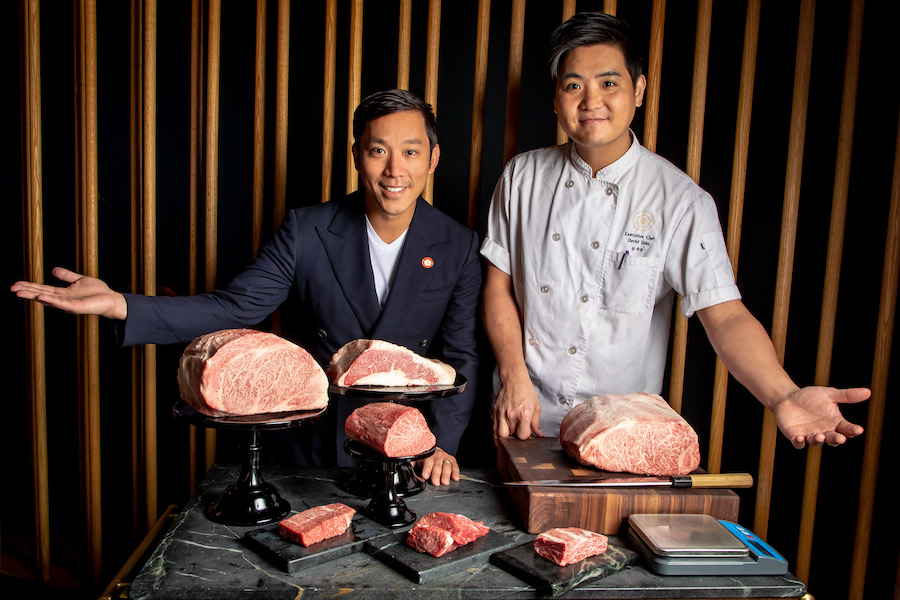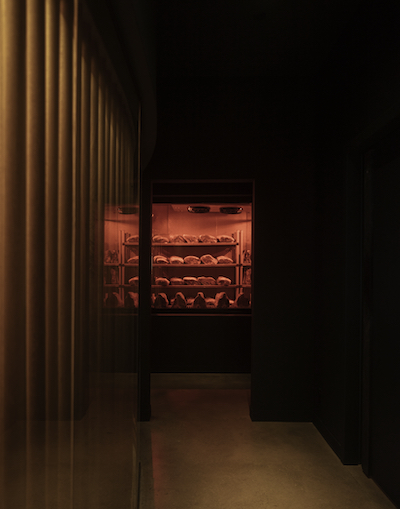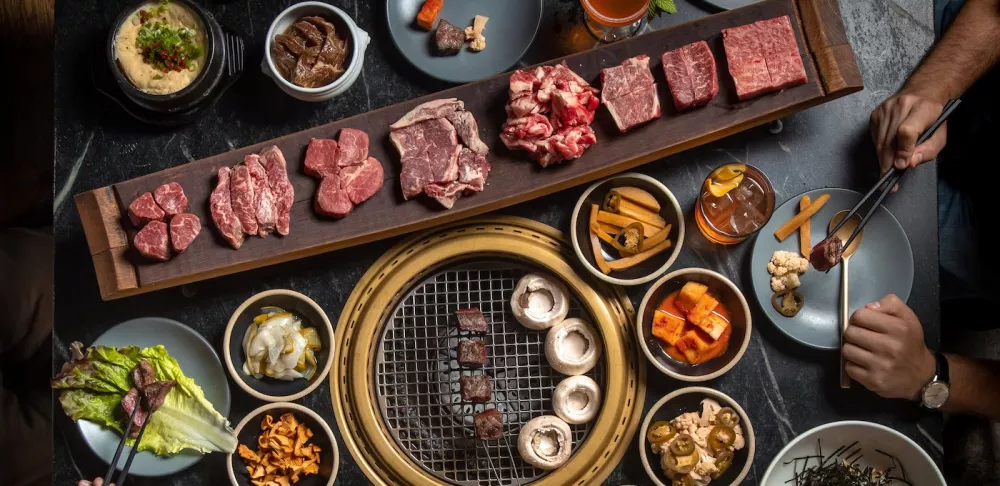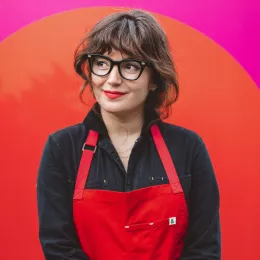Simon Kim opened his first outpost of high-end Korean steakhouse, Cote, in Miami in the middle of the greatest challenge this industry has faced — a pandemic. With restrictions, reduced capacities and mandated closures, Simon never stopped pivoting and planning. He shared his tactics for building the business with Institute of Culinary Education students during a recent virtual event.
After Simon Kim opened the sleek Korean steakhouse Cote in New York’s Flatiron district in 2017, the accolades streamed in. Within months, the restaurant earned a two-star review from The New York Times, three stars from New York magazine, three stars from Eater and a coveted Michelin star. The following year, GQ called Cote the Best New Restaurant in America. The positive response from critics and diners alike led Simon to contemplate expansion. After carefully considering D.C., Las Vegas and Los Angeles, the restaurateur chose Miami with plans to open in 2020. Then the unfathomable happened — the epidemic arrived in the U.S. We all know what happened after that. One might think a restaurateur with a fine-dining concept would pull the plug on expansion to a new city, but as an eternal optimist, Simon forged ahead.
In February, we hosted the restaurateur and philanthropist to hear how he strategized through the circumstances. Just five days after opening his latest location, he shared advice on pivots, plans and persistence in the midst of challenging times.
On the original Cote concept:
Cote is a Korean steakhouse. Half of me is Korean barbecue, and as I grew up in New York, half of me is the classic American steakhouse. Korean steakhouse is what I am. You can expect all the fun and fire of a barbecue and get silly and unpretentious but with the most excellent beef. Beef is king. We procure the best beef, even compared to the most prestigious steakhouses. On top of that, we’ve thrown in 1,200 labels of wine, an amazing cocktail list and ambiance. We try to procure the best of both worlds.

On adding revenue streams:
The government basically closed down restaurants, but the industry-specific restrictions did not come with industry-specific relief. My managers, my vice presidents, they all have children, dependents and payments, and unemployment was insufficient to sustain life, not only in NYC but anywhere.
If all want to survive, the only way is by bringing in more revenue. So we got together and brainstormed ideas of what we can do to make that happen. In April of 2020, regulars were leaving New York and calling us for a box of steak. We had a dry-aging room filled with steak, so we cut them up, put them in a package with our vegetables, and we called it our Steak Care Package. Then Goldbelly approached us — this steak care package is loved by everyone, and so one month later we were sending steak to Hawaii. Now our business volume on Goldbelly is significant.
On translating fine dining to takeout:
We are a Michelin-starred steakhouse. How do you transition from our grilling meat to eating at home? We focused on small details on making a more cared-for takeout. When you cook and rest the meat, cut and put into a container, what happens is the purge – what looks like blood – it all seeps out. When it gets to someone’s house, it is resting in that unappetizing liquid. So, we decided to get a bunch of Wonder bread and layer the bottom of the steak with two pieces of Wonder bread which provides a plush place so it doesn’t wobble around and all the liquid is absorbed into the bread. The bread is not something Cote recommends eating, but our customers enjoyed eating it as well. We purchased really nice pink envelopes for our utensils, which we put a little note inside from us. There’s a sense of refinement that we put into our service and we tried our best to put that same care into our takeaway and delivery. We really took a lot of care.
On managing costs:
When we decided to pivot, we put a lot of thought into it. It was a pandemic, it’s not a time to make money, rather it’s a time to survive. We initially called all of our vendors and told them we were going into delivery, but clearly, we’re not going to be able to pay you what we paid before. My goal was never to make money, as long as I can sustain and feed people – so that same interest had to be aligned with the vendors. I called my steak vendor and said, charge me the rock-bottom price you can. We were able to provide the same quality at a fraction of the cost.

On the challenge of opening in Miami:
I was still raising capital when COVID-19 happened. I was halfway funded. When literally every restaurant is shut down, how do you get investors? It’s like, "Hey, my restaurant is closed, and it looks like it’s going to be a year or so..." There were many sleepless nights and desperate phone calls. But, once again, if you persevere, stay consistent, see through it, don’t give up, and don’t lose confidence in optimism, you can make it happen.
Construction was difficult as well. There was a stay-at-home order that delayed everything. I had to negotiate more free rent. As an operator of a small restaurant, you are not really in control to do anything other than work with everyone including landlords, contractors, investors ... by communicating and sharing what’s going on. Be transparent, be firm, but be confident. Every one of them was cooperative. We were able to open the restaurant pretty much on budget. Not too delayed.
On finding inspiration in the midst of crisis:
I always thought as a restauranteur who came from nothing, I had thick skin and a hard core, but if I look back at myself pre-pandemic, one year ago, I didn’t know anything. I was a softy. The pandemic hardened our shell and made us more shrewd, brave and courageous operators. You know what they say? A calm ocean never produced a great sailor. This super turbulent time allowed us to navigate through with a tiny budget and so many challenges — challenge after challenge — and after a while, you got used to it. Cote was a success from the beginning, but what doesn’t kill you makes you stronger and it inspired me in a way that nothing has ever done. I am extremely grateful to my team who was able to come together and make this ship stronger and better than when it went into the storm.
Study operational strategies like Simon's in Restaurant & Culinary Management at ICE.




